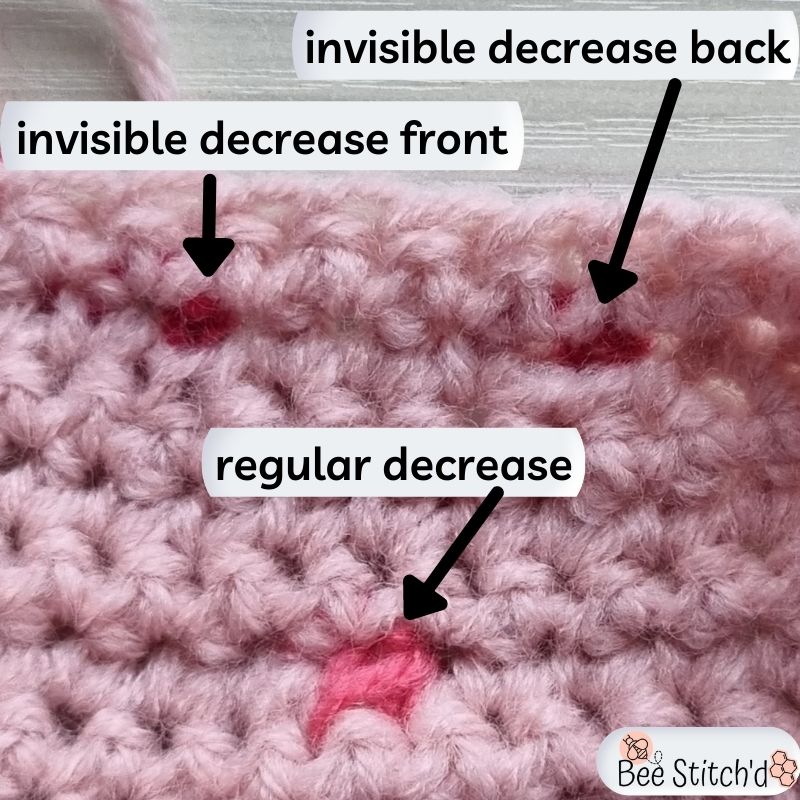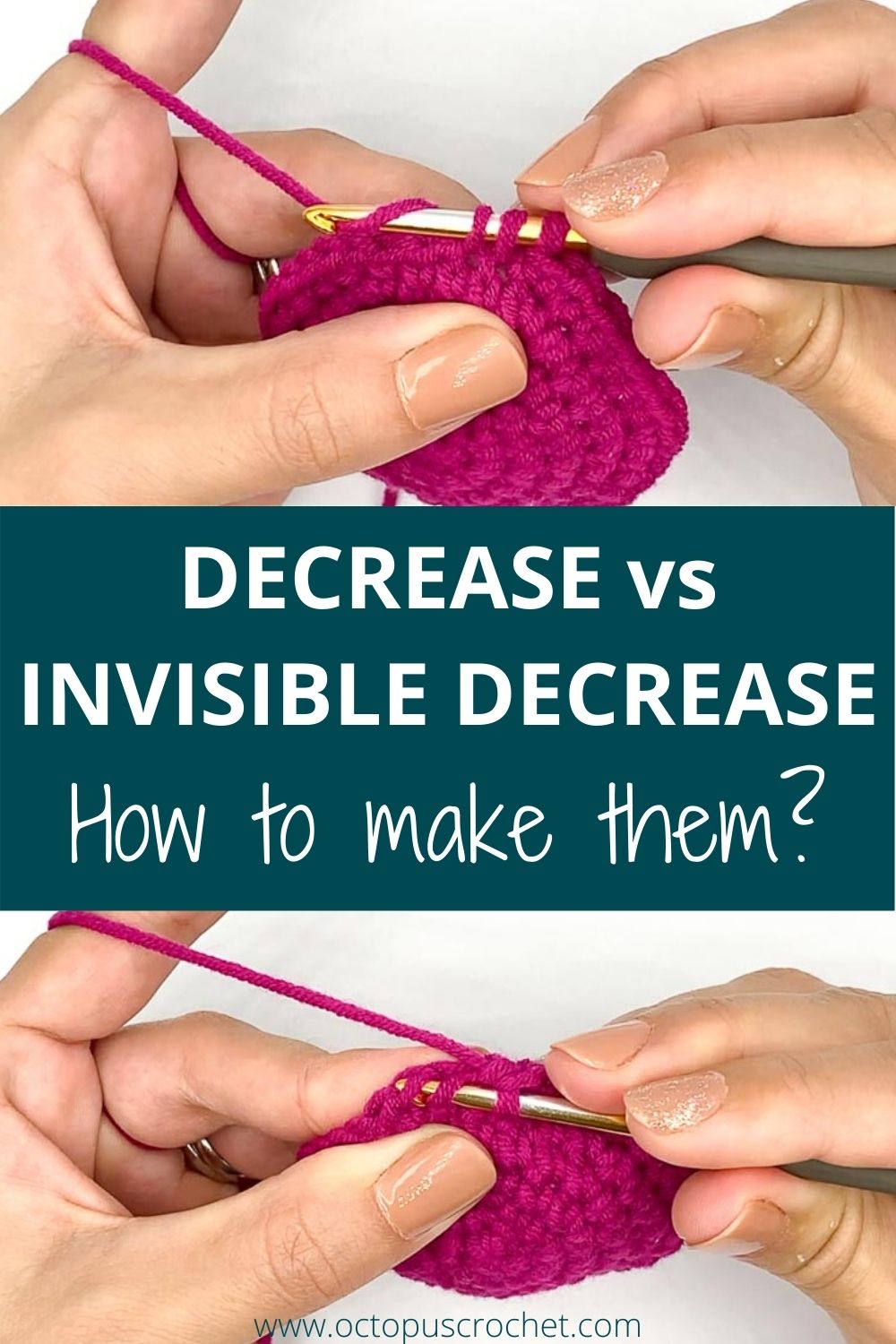Invisible Decrease Knitting
Invisible Decrease Knitting - Work up to the point of your first decrease. Insert your hook into the front loop only of the next stitch… step 2. Learn to knit the ssk (slip, slip, knit) decrease for beginners. Web insert hook under front loop only of next stitch. It's nothing else but doing a simple knit stitch through two loops at once instead of just. There are many different ways to increase and decrease in knitting. Or you may be working a pattern where. Web the first method i showed you will form a rather neat decrease that is maybe a little bit more invisible when stacked upon each other. Web the blue mouse knits. Web the ‘classic’ way of doing decreases (on a knit row) is to do a left leaning decrease (eg ssk) at the beginning of the row and a right leaning (ie k2tog) at the end of the row, so that the decreases lean in towards each other and create a shallow ‘piping’. Make 1 m1 invisible increase. 35k views 11 years ago. Web move on to the raised increase, also known as make one increase, which creates an invisible increase because it’s worked into the horizontal strand between stitches. Or you may be working a pattern where. 224k views 8 years ago. 35k views 11 years ago. 176k views 4 years ago. The k2tog is the most common (and often considered the easiest) single. Depending on the project and circumstances, one, or the other may be desirable. It's nothing else but doing a simple knit stitch through two loops at once instead of just. Web the blue mouse knits. 243k views 6 years ago. 35k views 11 years ago. Learn to knit the ssk (slip, slip, knit) decrease for beginners. Web what is the most invisible decrease in knitting? Sometimes patterns, especially older patterns, will tell you to decrease without specifying which decrease to use. Work up to the point of your first decrease. 243k views 6 years ago. This tutorial will walk you through the. Insert your hook into the front loop only of the next stitch… step 2. Then insert your hook into the front loop only of the next. Insert your hook into the front loop only of the next stitch… step 2. It's nothing else but doing a simple knit stitch through two loops at once instead of just. Or you may be working a pattern where. Web the ‘classic’ way of doing decreases (on a. Web use the point of the right needle to pass the second stitch on the left needle over the first stitch and off the left needle (figure 2). Work up to the point of your first decrease. Web the invisible decrease is surprisingly easy, it just takes a little brain adjustment to get used to the movement. Web the first. Insert hook in back loop only of same st. Or you may be working a pattern where. Web insert hook under front loop only of next stitch. Web the ‘classic’ way of doing decreases (on a knit row) is to do a left leaning decrease (eg ssk) at the beginning of the row and a right leaning (ie k2tog) at. Sometimes patterns, especially older patterns, will tell you to decrease without specifying which decrease to use. Web use the point of the right needle to pass the second stitch on the left needle over the first stitch and off the left needle (figure 2). 224k views 8 years ago. Depending on the project and circumstances, one, or the other may. Web what is the most invisible decrease in knitting? Work up to the point of your first decrease. Make 1 m1 invisible increase. Web the invisible decrease is surprisingly easy, it just takes a little brain adjustment to get used to the movement. Web some knitting increases are super visible, others almost invisible. There are many different ways to increase and decrease in knitting. Jon floyd august 25, 2022. Make 1 m1 invisible increase. Insert hook in back loop only of same st. It's nothing else but doing a simple knit stitch through two loops at once instead of just. Web the first method i showed you will form a rather neat decrease that is maybe a little bit more invisible when stacked upon each other. Web the blue mouse knits. Web some knitting increases are super visible, others almost invisible. Jon floyd august 25, 2022. Web the ‘classic’ way of doing decreases (on a knit row) is to do a left leaning decrease (eg ssk) at the beginning of the row and a right leaning (ie k2tog) at the end of the row, so that the decreases lean in towards each other and create a shallow ‘piping’. Insert your hook into the front loop only of the next stitch… step 2. For written instructions and photos. Web use the point of the right needle to pass the second stitch on the left needle over the first stitch and off the left needle (figure 2). Or you may be working a pattern where. There are many different ways to increase and decrease in knitting. Work up to the point of your first decrease. Sometimes patterns, especially older patterns, will tell you to decrease without specifying which decrease to use. Web move on to the raised increase, also known as make one increase, which creates an invisible increase because it’s worked into the horizontal strand between stitches. It's nothing else but doing a simple knit stitch through two loops at once instead of just. Insert hook in back loop only of same st. Web the invisible decrease is surprisingly easy, it just takes a little brain adjustment to get used to the movement.
InvisibleDecreaseStepThree love. life. yarn.

How To Do An Invisible Decrease Crochet Bee Stitch'd
![The best leftleaning decreases in knitting [+7 techniques + slowmo video]](https://nimble-needles.com/wp-content/uploads/2021/08/different-left-leaning-knitting-decreases-side-by-side.jpg)
The best leftleaning decreases in knitting [+7 techniques + slowmo video]
![The best leftleaning decreases in knitting [+7 techniques + slowmo video]](https://nimble-needles.com/wp-content/uploads/2021/08/left-leaning-decreases-in-knitting-shown-on-a-swatch.jpg)
The best leftleaning decreases in knitting [+7 techniques + slowmo video]

How to do an Invisible Decrease The Loopy Lamb

The invisible decrease method is great for projects that are worked in

How To Crochet Single Crochet Invisible Decrease Crochet 365 Knit Too

How to do an Invisible Decrease The Loopy Lamb

Decrease vs Invisible decrease how to make them Octopus Crochet

How to do an Invisible Decrease The Loopy Lamb
243K Views 6 Years Ago.
Web Insert Hook Under Front Loop Only Of Next Stitch.
Learn To Knit The Ssk (Slip, Slip, Knit) Decrease For Beginners.
Depending On The Project And Circumstances, One, Or The Other May Be Desirable.
Related Post: